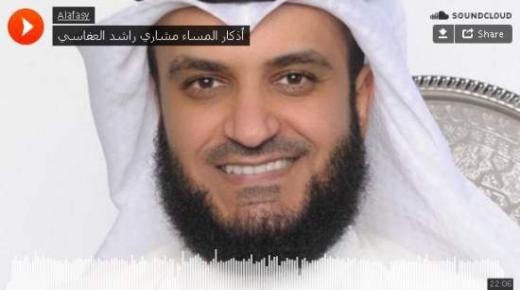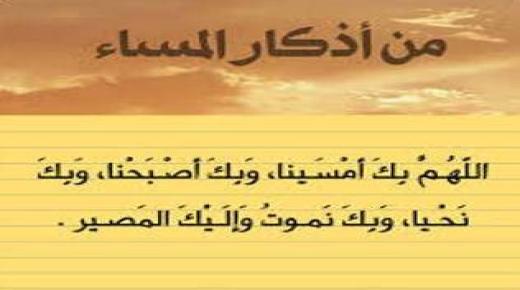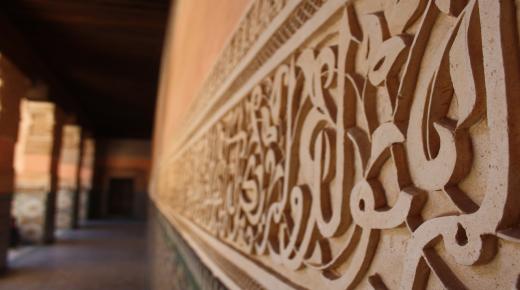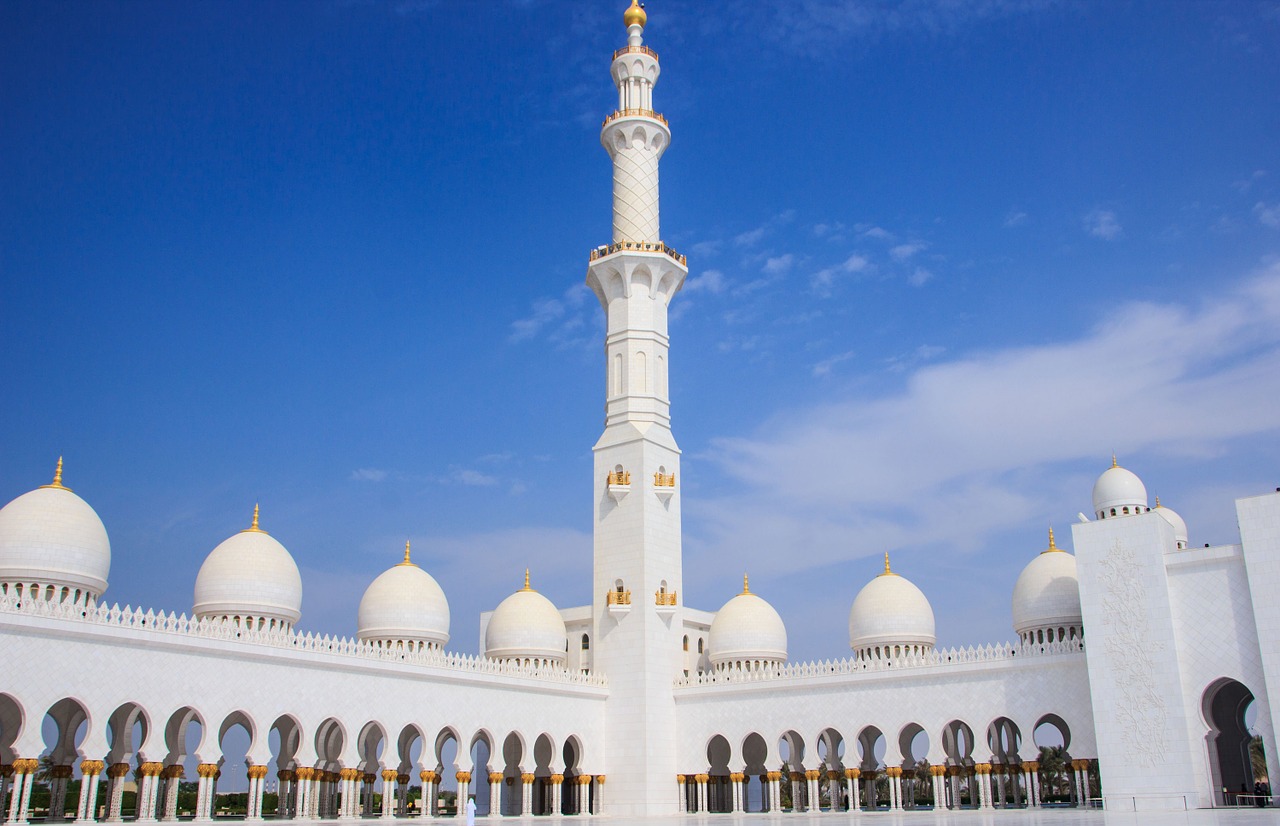
Prayer is one of the greatest types of remembrance because it includes remembrances in every place in it, so it opens with the opening takbeer, then the opening supplication, the recitation of Al-Fatihah, the surah or the verses from the Qur’an, the supplication of bowing, the takbeers of moving, the supplications of prostration and the tashahhud. Combined in the form of ad hoc and ad hoc movements.
Remembrance after prayer
That is why God (blessed and exalted be He) said: “And establish prayer for My remembrance” (Taha:14), so what is prayer with everything in it except a remembrance of God, and there is no evidence for this from what God (the Most High) said about the Friday prayer: “O you who have believed, when the call is made to prayer From Friday, hasten to the remembrance of God, and leave off commerce. That is better for you, if you only knew.” (Al-Jumu’ah: 9) The reward of remembrance and remembrance.
And God combined them, and he (Glory be to Him) said about Satan who does not want a person to do good and repels him from every good deed, so God chose to pray and remember, and he said (Glory be to Him): You are forbidden” (Al-Ma’idah: 91).
And God connected them once again, so He spoke about the hypocrites who are lazy about praying, so He named them lazy about the remembrance of God, and He said (Glory be to Him): And God is only a little.” Surah Al-Nisa: 142.
And remembrance in terms of meaning is the opposite of forgetting, as God (Almighty and Sublime) asks the Muslim to remember Him and remember Him in every situation and in every action.
And after every action, so that his heart and mind are connected to God (Glory be to Him), and he remembers God’s control and knowledge of him at all times and in every place, in order to achieve the meaning of ihsan in worshiping God, which the Messenger of God (may God bless him and grant him peace) explained to Gabriel when he came to ask him to teach the Muslims.
And its clarification is what was stated in Sahih Muslim on the authority of Omar Ibn Al-Khattab: In the long hadith of Gabriel and in it: So tell me about charity? He said: “Ihsaan is to worship God as if you see Him, and if you do not see Him, then He sees you.” So the degree of ihsaan is achieved only for those who remember God a lot and remember that He (Glory be to Him) sees them and His knowledge of their conditions.
Among the remembrances related to prayer are the remembrances that the Messenger (may God bless him and grant him peace) taught us and which he used to persevere in and which his companions and wives, the mothers of the believers, transmitted to us.
Perhaps one of the most important evidences of the remembrance of God after performing all the acts of worship is his saying (Almighty) after performing the Hajj pilgrimage: “So if you spend your hands, then remember God as your fathers, your fathers, or the most remembrance of the one who is the one who is the one who is a remembrance of the one who is the one who is a remembrance of the 200), and God (the Almighty) said after completing the Friday prayer: “When the prayer is finished, disperse in the land and seek God’s bounty, and remember God a lot that you may be successful” (Surat Al-Jumu’ah: 10).
This indicates that the performance of acts of worship and their conclusion is linked to the remembrance of God (Glory be to Him), because the worship of all servants does not fulfill the right of God (Glory be to Him), after which the servant should remember his Lord to make up for every deficiency in it.
What is the best remembrance after prayer?
And the remembrances after the completion of the prayer have a great virtue, as the reward is completed for the believer who maintained the performance of his prayers, so every Muslim performs his prayers in one of the houses of God or alone in his house and then leaves the remembrances that the Prophet (peace and blessings of God be upon him) used to preserve after the prayer, so he is considered negligent In his own right by depriving her of great rewards that he forfeited, including:
- A promise from the Messenger of God (may God’s prayers and peace be upon him) to whoever recites Ayat al-Kursi behind - that is, behind - every written prayer that there will be nothing between him and entering Paradise except that he will die, and this is one of the greatest promises, if not the greatest of all.
- A guarantee of forgiveness for all previous sins, even if they are as numerous as the foam of the sea, for the one who concludes his prayer by praising God thirty-three times, praising Him thirty-three times, and enlarging Him thirty-three times, and concluding the hundred by saying: “There is no god but God alone, He has no partner. Everything is capable.” With these simple words, after every prayer, all past sins, no matter how many, are erased.
- Dhikr in the mosque after the prayer counts its time as if it was in a prayer, as if the prayer had not ended, so it stayed for saying the dhikr with which he concludes the prayer does not take him out of the prayer, but rather the reward extends as long as he is still in his sitting.
- And his repetition of the remembrances at the end of the prayer makes him under God’s protection until the time of the next prayer, and whoever is under God’s protection, God extends his security, cares for him, grants him success, and takes care of him, and nothing bad happens to him as long as he is with God (Glory be to Him).
- Mentioning the conclusion of the prayer gives you the reward that makes you realize the reward of those who preceded you by spending huge amounts of money in the way of God, as if you are exactly like him in the reward, so the conclusion of the prayer with glorification, praise and takbeer makes you catch up with those who preceded you in reward and surpass those who followed you, and he did not do the same as you did.
Dhikr after the obligatory prayer
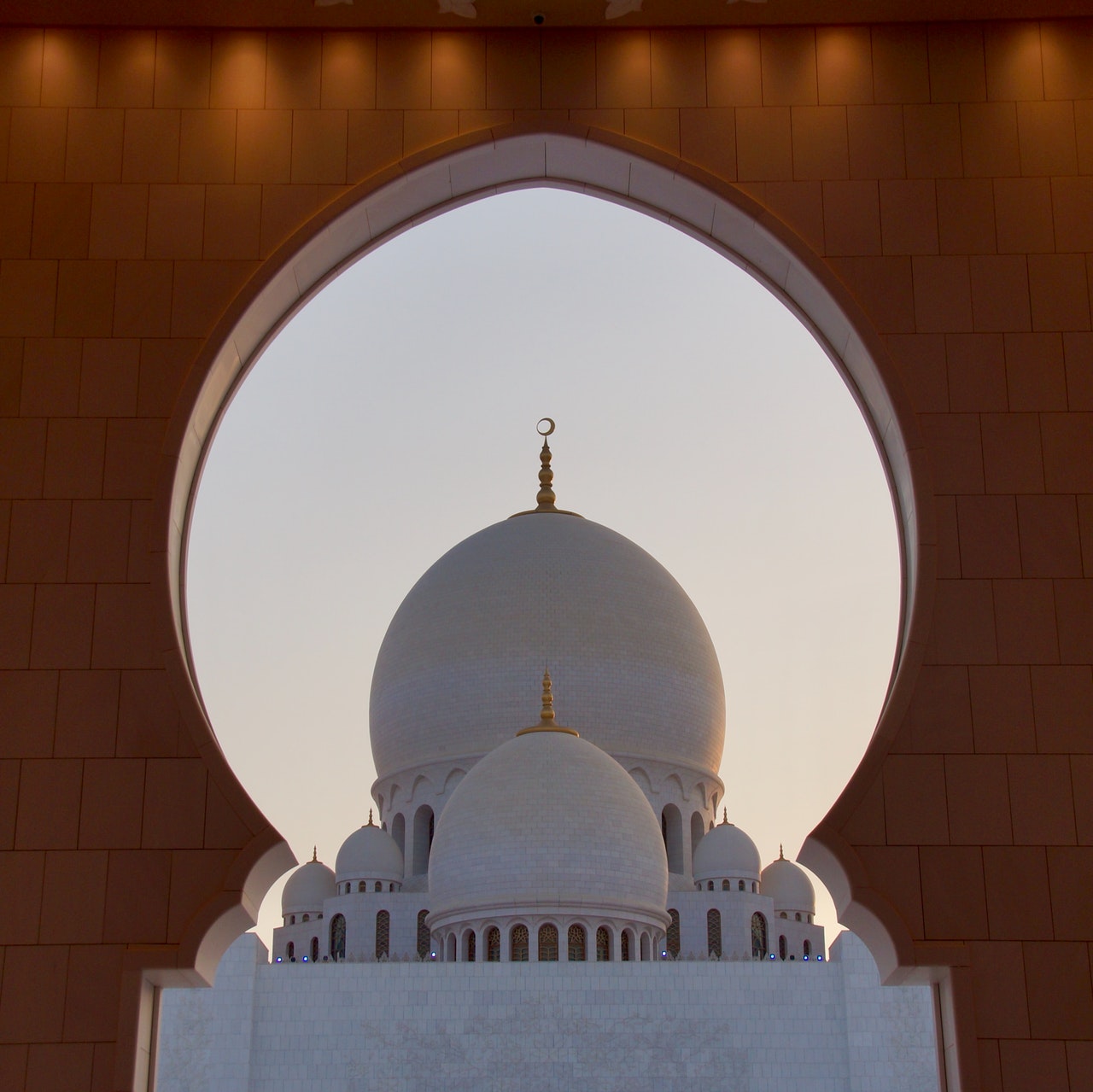
After the Muslim completes his prayers, he follows the example of the Prophet (may God bless him and grant him peace), and he does as the Messenger of God used to do. The honorable companions and his pure wives told us what he used to do after he finished his prayers, and they mentioned examples of each according to the situations he lived with him.
- He begins by saying, “I ask forgiveness from God three times,” then he says, “O God, You are peace, and peace is from You, Blessed be You, O Possessor of Majesty and Honor.”
For the saying of Thawban (may God be pleased with him), and he was the servant of the Messenger of God (may God bless him and grant him peace) and was attached to him.
And he said: “Oh God, you are peace, and from you is peace, Blessed be You, O Possessor of Majesty and Honor.” Al-Awza’i (may God have mercy on him), who is one of the narrators of this hadith, was asked about how he (may God’s prayers and peace be upon him) sought forgiveness, and he said: “I ask forgiveness of God, I ask forgiveness of God.” Narrated by Muslim.
- He reads Ayat al-Kursi once.
For the hadith of Abu Umamah (may God be pleased with him), where he said: The Messenger of God (may God bless him and grant him peace) said: “Whoever recites Ayat al-Kursi after every prayer, it will not prevent him from entering Heaven unless he dies.”
This hadith has a very great virtue, which is that every Muslim who recites it after every prayer, the Prophet (peace and blessings of God be upon him) promises him that he will enter Paradise as soon as the soul departs from his body, and every Muslim who knows about this great gift and this huge reward must never abandon it and persevere in it until his tongue gets used to it.
There is another grant in Ayat al-Kursi in reading it at the end of every obligatory prayer. Al-Hassan bin Ali (may God be pleased with them both) says: The Messenger of God (may God bless him and grant him peace) said: “Whoever reads Ayat al-Kursi at the end of the obligatory prayer is under God’s protection until the next prayer.” It was narrated by al-Tabarani, and al-Mundhiri mentioned it in al-Targheeb wa’l-Tarheeb, and the written prayer is the obligatory prayer, meaning the five obligatory prayers.
- The Muslim praises God, that is, he says, “Glory be to God” thirty-three times, and he praises God by saying Al-Hamd God thirty-three times, and God is great by saying “Allah is the Greatest” thirty-three or thirty-four times, according to the hadith of Ka’b bin Ajrah (may God be pleased with him) on the authority of the Messenger of God (may God’s prayers and peace be upon him) who said: “Mu’qabat The one who says them or the one who does them is not disappointed in the arrangement of every written prayer: thirty-three praises, thirty-three praises, and thirty-four takbeers.” Narrated by Muslim.
These remembrances have great virtue, as they erase all the sins that preceded this prayer, as if the Muslim was born again without sin or sin. On the authority of Abu Hurairah (may God be pleased with him), on the authority of the Messenger of God (may God bless him and grant him peace), he said: “Whoever glorifies God, completes each prayer thirty-three times, And he praised God thirty-three times, and he glorified God thirty-three times, so that is ninety-nine, and the hundredth said: There is no god but God alone, without any partner. To Him belongs the dominion, and to Him is praise, and He has power over all things. His sins are forgiven, even if they are like the foam of the sea.” narrated by Muslim.
Also, its virtue does not stop at the forgiveness of sins only, but rather it raises ranks, increases in good deeds, and raises the servant’s standing with his Lord. Abu Hurairah (may God be pleased with him) reported that the poor immigrants came to the Messenger of God (may God bless him and grant him peace), and they said: The people of the hidden are gone with the highest ranks. And eternal bliss. He said: “And what is that?” They said: They pray as we pray, fast as we fast, give alms but we do not, and free slaves but we do not.
The Messenger of God (may God’s prayers and peace be upon him) said: “Shall I not teach you something by which you will catch up with those who preceded you and overtake those who come after you, and no one will be better than you except he who does something like what you did?” They said: Yes, O Messenger of God. He said: “You glorify God, praise God, and grow God thirty-three times after every prayer.” Abu Saleh said: The poor immigrants returned to the Messenger of God (may God bless him and grant him peace), and said: Our brothers, the people of money, heard what we did, and they did the same! The Messenger of God (may God bless him and grant him peace) said: “This is the bounty of God that He gives to whomever He wills.” Narrated by Al-Bukhari and Muslim.
The poor came to complain to the Messenger of God (may God bless him and grant him peace) about the lack of money in their hands, and they do not complain about the lack of money for a purpose of the world, because the world in their eyes has no value, but rather they complain about the lack of money because it reduces their chances of good deeds.
Hajj, zakat, all alms, and jihad, all of these acts of worship need money, so the Messenger of God (may God bless him and grant him peace) advised them to praise and praise God and exalt Him thirty-three times at the end of each prayer, and told them that by this they would catch up with the rich in reward and get ahead of others who did not do this work. Remembrances give good deeds equivalent to the reward of these virtuous deeds.
- He recites Surat al-Ikhlas (Say: He is God the One), Surat al-Falaq (Say, I seek refuge in the Lord of the Daybreak) and Surat al-Nas (Say, I seek refuge in the Lord of people) once after every prayer, except for Maghrib and Fajr. He recites each surah three times.
On the authority of Uqba bin Amer (may God be pleased with him), he said: The Messenger of God (may God’s prayers and peace be upon him) ordered me to recite Al-Mu’awwidhat after every prayer. Narrated by women and horses.
- He says, “There is no god but God alone, He has no partner, His is the kingdom and His is the praise, and He is capable of everything.
This is one of the supplications that the Messenger of God (may God bless him and grant him peace) perpetuated. Al-Mughirah ibn Shu’bah (may God be pleased with him) told us that he wrote to Muawiyah (may God be pleased with him) that the Prophet (may God bless him and grant him peace) used to say after every written prayer: “No There is no god but Allah alone, He has no partner, His is the kingdom and His is the praise, and He is capable of everything.
- He says, “Oh God, help me to remember You, to thank You, and to worship You well.”
This supplication is one of the supplications that a Muslim loves and loves to learn and teach to people because the Prophet (may God’s prayers and peace be upon him) taught it to Mu’adh between Jabal and he preceded it by telling him that he loves him, so this is the will of a lover. On the authority of Mu’adh ibn Jabal that the Messenger (may God’s prayers and peace be upon him) took him by the hand and said: “Oh Moaz, by God, I love you, by God, I love you.” Then he said: “I advise you, O Moaz, not to stop saying at the end of every prayer: “O God, help me in remembering You, thanking You, and worshiping You well.” Narrated by Abu Dawud and others, and authenticated by Sheikh Al-Albani.
This is a gift given by the Messenger of God to whomever he loves and entrusted him with it.
- The Muslim says after the end of the prayer: “There is no god but God alone, He has no partner, His is the kingdom, and His is the praise, and He is capable of everything. There is no god but God, and religion is pure to Him, even if the unbelievers hate it.”
When it was stated in Sahih Muslim that Abdullah bin Al-Zubayr (may God be pleased with them both) used to say it after every prayer when he greeted, and when he was asked about it, he said: “The Messenger of God (may God bless him and grant him peace) used to rejoice in them after every prayer.” Meaning he rejoices; That is, he remembers God with the testimony of monotheism, and his name is Tahlil.
- It is Sunnah for a Muslim to supplicate with this supplication at the end of every prayer, saying: “O Allah, I seek refuge in You from disbelief, poverty, and the torment of the grave.”
On the authority of Abu Bakra Nufay’ bin Al-Harith (may God be pleased with him), he said: “The Messenger of God (may God’s prayers and peace be upon him) used to say after the prayer: O God, I seek refuge in You from disbelief and poverty, and I seek refuge in You from disbelief and poverty. “Father of the grave.” Narrated by Imam Ahmad and Al-Nasa’i and authenticated by Al-Albani in Sahih Al-Adab Al-Mufrad.
- It is also Sunnah for him to supplicate with this supplication, which the honorable companion Saad bin Abi Waqqas used to teach to his children and grandchildren, just as the teacher teaches students to write, so he used to say: The Messenger of God (may God bless him and grant him peace) used to seek refuge from them after the prayer:
“O God, I seek refuge in You from cowardice, and I seek refuge in You from being returned to the most miserable life, and I seek refuge in You from the temptations of this world, and I seek refuge in You from the torment of the grave.” » Narrated by Al-Bukhari and peace be upon him.
- A Muslim should say: “My Lord, protect me from Your torment on the Day You resurrect Your servants.”
Imam Muslim narrated on the authority of Al-Bara’ (may God be pleased with him) that he said: When we prayed behind the Messenger of God (may God’s prayers and peace be upon him), we liked to be on his right, so that he would approach us with his ease, with his face: He says: “My Lord, protect me from Your punishment on the day You are resurrected or Your servants are gathered.”
- For him to say: “Oh God, I seek refuge in all of disbelief, poverty, and the torment of the grave.”
فعن سلم بن أبي بكرة أَنَّهُ مَرَّ بِوَالِدِهِ وَهُوَ يَدْعُو وَيَقُولُ: اللهُمَّ إِنِّي أَعُوذُ بِكَ مِنَ الْكُفْرِ وَالْفَقْرِ وَعَذَابِ الْقَبْرِ، قَالَ: فَأَخَذْتُهُنَّ عَنْهُ، وَكُنْتُ أَدْعُو بِهِنَّ فِي دُبُرِ كُلِّ صَلَاةٍ، قَالَ: فَمَرَّ بِي وَأَنَا أَدْعُو بِهِنَّ، فَقَالَ: يَا بُنَيَّ، أَنَّى عَقَلْتَ these words? قَالَ: يَا أَبَتَاهُ سَمِعْتُكَ تَدْعُو بِهِنَّ فِي دُبُرِ كُلِّ صَلَاةٍ، فَأَخَذْتُهُنَّ عَنْكَ، قَالَ: فَالْزَمْهُنَّ يَا بُنَيَّ، فَإِنَّ رَسُولَ اللهِ (صلى الله عليه وسلم) كَانَ يَدْعُو بِهِنَّ فِي دُبُرِ كُلِّ صَلَاةٍ”، رواه ابن أبي شيبة وهو حديث حسن.
- The Companions quoted on the authority of the Prophet (may God bless him and grant him peace) that he used to say: “Glory be to your Lord, the Lord of glory above what they describe * and peace be upon the messengers * and praise be to God, Lord of the worlds.”
كما جاء عن أبي سعيد الخدري (رضي الله عنه): أَنَّ النَّبِيَّ (صلى الله عليه وسلم) كَانَ إِذَا فَرَغَ مِنْ صَلَاتِهِ قَالَ: لَا أَدْرِي قَبْلَ أَنْ يُسَلِّمَ، أَوْ بَعْدَ أَنْ يُسَلِّمَ يَقُولُ: ﴿سُبْحَانَ رَبِّكَ رَبِّ الْعِزَّةِ عَمَّا يَصِفُونَ * وَسَلَامٌ عَلَى الْمُرْسَلِينَ * Praise be to God, Lord of the worlds.” (As-Saffat: 180-182)
What are the remembrances after the peace of prayer?
Among the established Sunnahs of the Prophet (may God’s prayers and peace be upon him) is to raise the voice at the end of the prayer, so the Messenger (peace and blessings of God be upon him) used to raise the voice and the worshipers could hear it from him to the extent that those who live around the mosque could hear the remembrance of the conclusion of the prayer, so they would know that the Messenger of God (peace and blessings of God be upon him) ) and the Muslims had finished the prayer, and about this Abdullah Ibn Abbas (may God be pleased with them both) used to say: “I would know if they left from that if I heard it.”
And the voice should not be loud, because the Sunnah is for the voice to be medium so that it does not disturb those who complete their prayers, so as not to disturb them, and the purpose of raising the voice is to teach the ignorant, remember the forgetful, and encourage the lazy.
And the conclusion of the prayer is in the prayer of the resident and the traveler, so there is no difference between praying completely or shortening it, and there is no difference between individual or group prayer.
People often ask about the preference for tasbeeh on the hand or through the rosary, so it came in the Sunnah that tasbeeh on the hand is better than the rosary and that the hand of tasbeeh is on the right hand, so Abdullah bin Amr bin Al-Aas (may God be pleased with them) says: “I saw the Messenger of God (peace be upon May God bless him and grant him peace) holding the glorification with his right hand.” Sahih Abi Dawood by Al-Albani.
Many have inferred the permissibility of praising the rosary because the Messenger of God (may God bless him and grant him peace) saw some of the companions praising stones and pebbles, and he did not deny them that. Saad bin Abi Waqqas narrated that he entered with the Messenger of God (may God bless him and grant him peace) upon a woman and in her hands were stones or stones. pebbles to glorify Him, and he said: “I will tell you what is easier for you than this and better: “Glory be to God the number of what He created in the sky, and Glory be to God the number of what He created on earth…” Narrated by Abu Dawood and Al-Tirmidhi.
And also the hadith narrated by Mrs. Safiyya, the Mother of the Believers, who said: “The Messenger of God, may God bless him and grant him peace, entered upon me and I had in my hands four thousand kernels with which I was glorifying, and he said: ‘I have glorified with this! Don't I teach you more than what you swam with? She said: Teach me. He said: “Say, Glory be to God, according to the number of His creation.” Narrated by Al-Tirmidhi.
If the Messenger (may God’s prayers and peace be upon him) approves of tasbeeh on stones and pebbles, then tasbeeh using the rosary is permissible, but tasbeeh on the hand is better because the Messenger (peace and blessings of God be upon him) did that.
Remembrance after Fajr and Maghrib prayers
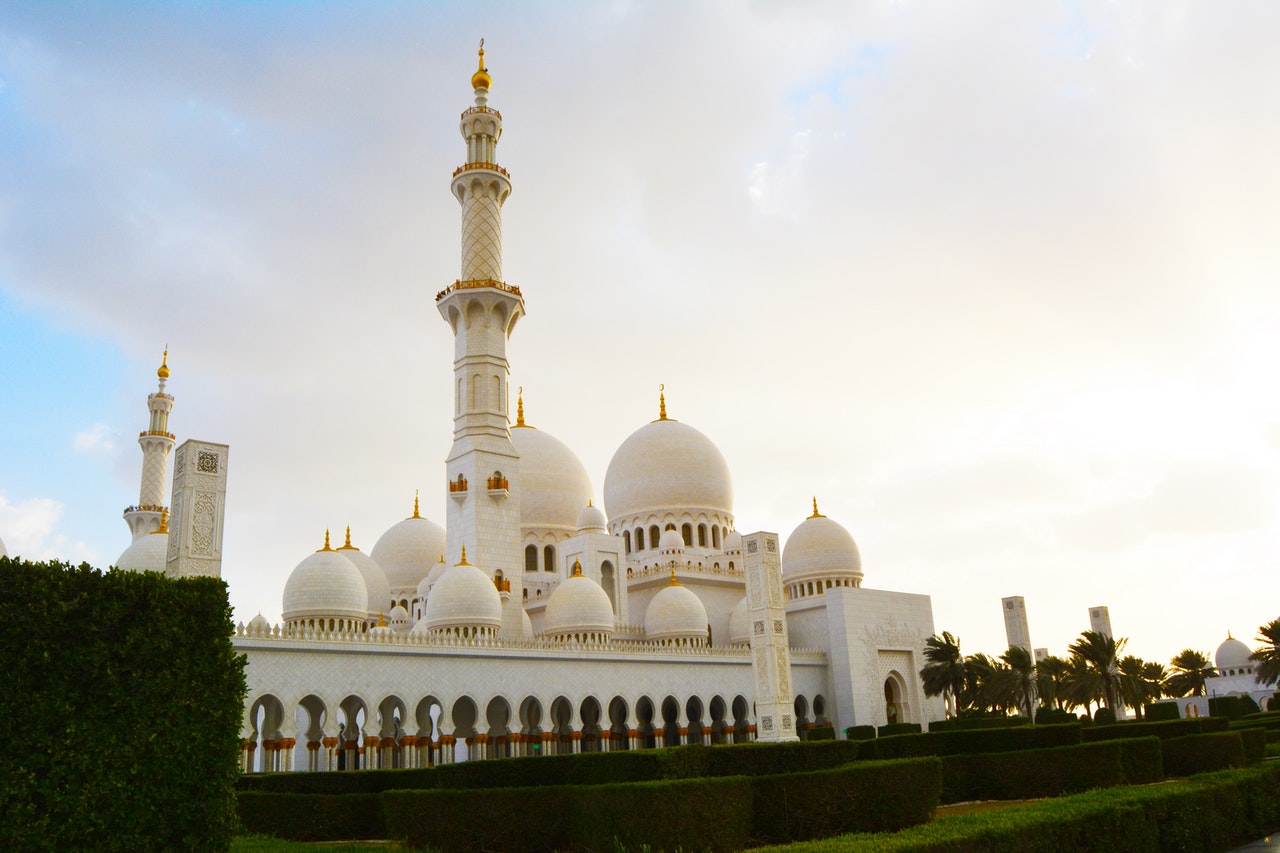
After Fajr and Maghrib prayers, all the remembrances that are recited in all other prayers are said, but some remembrances are added to them, including:
- Reciting Surat Al-Ikhlas and Al-Mu’awiztayn Al-Falaq and Al-Nas three times.
For the hadith narrated by Abdullah bin Khubayb (may God be pleased with him) that the Prophet (peace and blessings of God be upon him) said to him: (Say: “Say: He is God, one,” and the two exorcists three times in the evening and in the morning, it suffices you from everything. “Sahih al-Tirmidhi.”
- Reciting the remembrance of “There is no god but God alone, He has no partner, His is the kingdom and His is the praise, He gives life and causes death, and He has power over all things” ten times.
لما روي عن عبد الرحمن بن غنم مُرسلًا إلى النبي (صلى الله عليه وسلم): (مَنْ قَالَ قَبْلَ أَنْ يَنْصَرِفَ وَيَثْنِيَ رِجْلَهُ مِنْ صَلَاةِ الْمَغْرِبِ وَالصُّبْحِ: لَا إِلَهَ إِلَّا اللهُ، وَحْدَهُ لَا شَرِيكَ لَهُ، لَهُ الْمُلْكُ وَلَهُ الْحَمْدُ، بِيَدِهِ الْخَيْرُ، يُحْيِي وَيُمِيتُ ، وَهُوَ عَلَى كُلِّ شَيْءٍ قَدِيرٌ عَشْرَ مَرَّاتٍ، كُتِبَ لَهُ بِكُلِّ وَاحِدَةٍ عَشْرُ حَسَنَاتٍ، وَمُحِيَتْ عَنْهُ عَشْرُ سَيِّئَاتٍ، وَرُفِعَ لَهُ عَشْرُ دَرَجَاتٍ، وَكَانَتْ حِرْزًا مِنْ كُلِّ مَكْرُوهٍ، وَحِرْزًا مِنَ الشَّيْطَانِ الرَّجِيمِ، وَلَمْ يَحِلَّ لِذَنْبٍ يُدْرِكُهُ إِلَّا الشِّرْكَ، وَكَانَ مِنْ أَفْضَلِ النَّاسِ عَمَلًا، Except for a man who prefers it, saying: better than what he said) Narrated by Imam Ahmad.
- The Muslim says, “O Allah, save me from Hell” seven times.
When Abu Dawud and Ibn Hibban narrated that the Prophet (may God’s prayers and peace be upon him) used to say after dawn and sunset: “Oh God, save me from Hell,” seven times, and for the saying of the Messenger (may God’s prayers and peace be upon him) if you pray the morning prayer, say before you speak to anyone: “Oh God.” Deliver me from the Fire” seven times, for if you die during your day, God will write for you a protection from the Fire, and if you pray Maghrib, then say the same, because if you die during your night, God will write for you a protection from the Fire.” Narrated by Al-Hafiz Ibn Hajar.
- It is desirable for him, after the salutation of the Fajr prayer, to say: “Oh God, I ask you for useful knowledge, good sustenance, and acceptable deeds.”
For the hadith narrated by Mrs. Umm Salama, the mother of the believers, that the Prophet (may God bless him and grant him peace) used to say when he prayed the morning prayer when he greeted: “Oh God, I ask you for useful knowledge, good sustenance, and acceptable work.” Narrated by Abu Dawood and Imam Ahmed.
Is it permissible to read the morning remembrances before Fajr prayer?
There were many sayings of the commentators regarding the interpretation of the noble verse: “Glory be to God when you are in the evening and when you are in the morning” Surat Al-Rum (17), so Imam al-Tabari says: “This is praise from Him (the Almighty) for His sacred self, and guidance for His servants to glorify and praise Him in these times”; That is, in the morning and evening time.
And the scholars inferred by it the best times to read the morning remembrances from the moment the break of dawn until sunrise and accordingly. They said that it is permissible to recite the morning remembrances even before a Muslim performs the Fajr prayer, so it is valid to read them before and after the Fajr prayer.
Remembrances after the call to prayer
The remembrances of the call to prayer are divided into remembrances that are said during the call to prayer and remembrances that are said after the call to prayer, and they are united by this hadith in which Abdullah bin Amr bin Al-Aas (may God be pleased with them both) says that he heard the Messenger of God (may God bless him and grant him peace) say: “If you hear the call, say something like the call to prayer.” Say then Send blessings upon me, for whoever sends blessings upon me, may God bless him ten times, then ask God for the means for me, for it is a position in Paradise that is not appropriate except for one of God’s servants. I hope that I am him, so whoever asks me for the means, intercession will be granted to him.” narrated by Muslim.
The hadith is divided into three prophetic directives:
- To say as the muezzin says, except in the life of prayer and the life of success, so we say, “There is neither might nor power except with God.”
- To pray for the Messenger (may God bless him and grant him peace), so for each of our prayers upon the Messenger of God, we have ten blessings from God upon us, and God’s prayer here for the servant is not like our prayers, but it is God’s remembrance for us.
- That we ask God for the means for His Messenger Muhammad (may God bless him and grant him peace), so whoever asks for the Messenger of God for the means, the intercession of the Holy Prophet will be permissible for him, and the formula of the supplication is: “Oh God, Lord of this complete call, and the established prayer, give Muhammad the means and the virtue, and send him to a resurrected station.”
